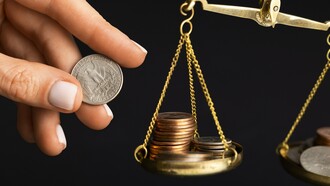Given Russia’s invasion of Ukraine, one wonders about the long-term impact of communism.
The years of communism have left their mark on the character of many Russians that persists until today. They seem introspective and disillusioned, perhaps due to a lack of certain freedoms during the era of the Soviet Union, a situation I also observed in Armenia several years ago.
As some young Armenians told me at the time, and as I was also told by several Russian friends, although their basic needs were covered, there was enormous pressure not to be different and creative, thus giving the people a sense of oppression that eventually influenced their character.
After the breakup of the Soviet Union in 1991, Russia went through a period of great ferment. Angela Sem, a young Russian who now lives in New York, told me: “After the destruction of the Soviet Union, there was a period of confusion, a lack of rules, and a lack of business ethics when people with strong personal initiative took advantage of the situation to start building huge fortunes. Those people close to power were obviously the most favored.”
The result is that today Russia has developed as a “bipolar” society, where a small minority has enormous wealth and the majority of the population is middle-class or lower-middle-class.
The allure of exile
The lack of opportunities and growing economic difficulties entice many young people (among them many artists, scientists, and technical professionals) to emigrate, particularly to Europe and the United States.
Those who emigrate are mostly young people who want to broaden their horizons and have better professional opportunities, and who feel constrained by the prevailing climate of corruption in the country. For example, merchants who refuse to pay bribes are visited by fire inspectors, tax auditors, or the police until they give up and pay, or they have their business closed.
During a trip to Russia, I was walking through a suburb of Moscow where, despite good weather, I found few people walking on the streets. Suddenly, I felt disoriented, unable to find the entrance to the subway I was looking for.
I stopped a woman walking with her young daughter and asked her, in my basic Russian, for directions. She quickly replied in Russian. When I asked her to speak more slowly, she told me, now in perfect English, where the subway was.
We had a brief chat, and I asked her for her view on the current situation in Russia. She explained to me the difficulties faced by young people who want a job and a salary that may allow them to live well.
I told her that according to the government, Russia has a strong economy. In response, she said with slight irritation and almost despair in her voice, “If we are such a rich country, then why are we so poor?”
Russia as an economic power
According to its nominal GDP, the Russian economy is the ninth largest in the world. Its vast territory contains huge amounts of valuable natural resources worldwide. The Ural Mountains are full of minerals, gas and oil reserves, and there is plenty of coal and timber in Siberia and Russia’s Far East.
However, most of these reserves are located in remote, harsh regions far from ports, a situation that makes their exploitation very expensive and demands large capital investment. In addition, widespread corruption and a lack of investment in infrastructure negatively affect the economy.
An enigma called Putin
With the disintegration of the Soviet Union and the Communist Party, and Putin’s subsequent rise to power, Russia is probably the first case in the world of a country led by a member of its secret police.
In the 19th century, Fyodor Tyutchev, considered one of the last great Russian romantic poets, wrote:
Who would grasp Russia with the mind?
For her no yardstick was created:
Her soul is of a special kind
By faith alone appreciated.
This lack of understanding applies particularly to Vladimir Putin, one of Russia’s most enigmatic personalities.
In Russia, words and symbols are more important than reality. Putin, either as president or as prime minister, has repeatedly tried to use symbols to rally support for his policies. One of these symbols has been the idea of Russia as an isolated fortress, surrounded by powerful enemies, particularly the United States and NATO (North Atlantic Treaty Organization.)
Many people believe that although there has always been corruption in Russia, it has never been as great as now. This feeling is compounded by Putin’s maneuvers to stay in power indefinitely, which causes tremendous concern among many Russians.
Russia’s future
Proud of their past, Russians are more anxious than ever to freely express their political desires, and to grow and thrive in an atmosphere of peace and tranquility, something not possible with Putin in office and the relentless toll of the invasion of Ukraine.
Since taking power, Putin has exacerbated the negative aspects of his regime: consolidation of power, strict control of the media and the economy, electoral manipulation, and persecution of those who oppose his regime. However, he has gained popularity after the annexation of Crimea and the invasion of Ukraine.
Given these circumstances, it is impossible to predict with certainty the direction events will take. There are no indications that the war in Ukraine is going to end anytime soon. What is clear, however, is that Russia faces a wide and complex range of problems. How the Russian government will respond to these challenges will determine the kind of country that Russia will become.















